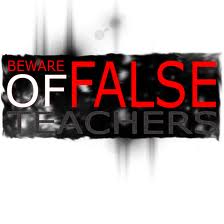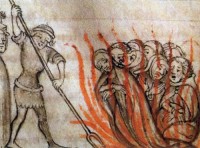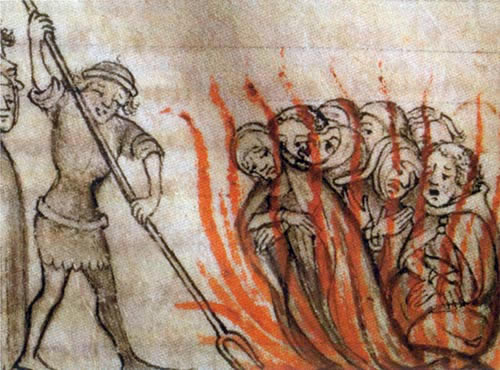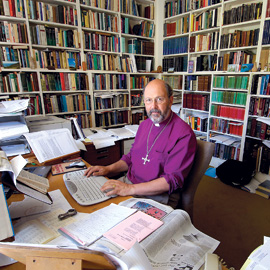
Second Peter 2:1 talks about false teachers denying the Lord who bought them. What does this mean?
First, note that Peter says these false teachers bring heresies,which, as we have seen previously, refers to divisions within the Body of Christ.
And what is it they teach which brings these divisions? According to Peter, their primary error is that they “deny the Lord who bought them.” Most translations render it in such a fashion, but I must say that such a translation is hopelessly weak.
Denying the Master who Redeemed Them
A better translation might be, “denying the Master who redeemed them.”
The word Peter uses for “Lord” or “Master” is not the typical kurios, but is rather despotēs. It is where we get our word “despot,” which has more negative connotations today than it did in Peter’s day. Back then, it referred to a Master who owned slaves.
The word “bought” is the Greek word agarazō, which in a Master-slave relationship refers to being redeemed (cf. Rev 5:9, 14:3-4). So what is Peter saying? He writes that these false prophets, these false teachers, these bringers of divisions, have been redeemed by Jesus their Master, and yet, as shocking as it sounds, they have the gall to deny Him!
Denying Christ
And what is the significance of their denial? Here is where the text gets even more interesting. The word that Peter uses for “deny” is arneomai, which is exactly the word used in the gospels when Peter denied Jesus (cf. John 13:38; 18:25, 27). Certainly when Peter wrote this sentence, he was thinking of his own earlier actions and behavior in denying his Master who redeemed him.
And if the words of Jesus in John 13:10-11 where He says that Peter is already “clean” means that Peter was justified and had eternal life, then what all of this means is that Peter recognizes that it is very possible for a redeemed and justified follower of Jesus Christ to be a false teacher and deny their Master, just as Peter himself had done.
[Read more…]









 I seem to have an affinity for authors whose names begin with two initials.
I seem to have an affinity for authors whose names begin with two initials. 
 But as church history and personal experience reveal, no church can completely guard the minds and hearts of the people who attend that church from different theology and dangerous ideas. To the contrary, it seems that the more a church tries to completely control what people hear, read, and think, the more cultish they become. And one of the defining characteristics of cults is that they are full of false teaching.
But as church history and personal experience reveal, no church can completely guard the minds and hearts of the people who attend that church from different theology and dangerous ideas. To the contrary, it seems that the more a church tries to completely control what people hear, read, and think, the more cultish they become. And one of the defining characteristics of cults is that they are full of false teaching.